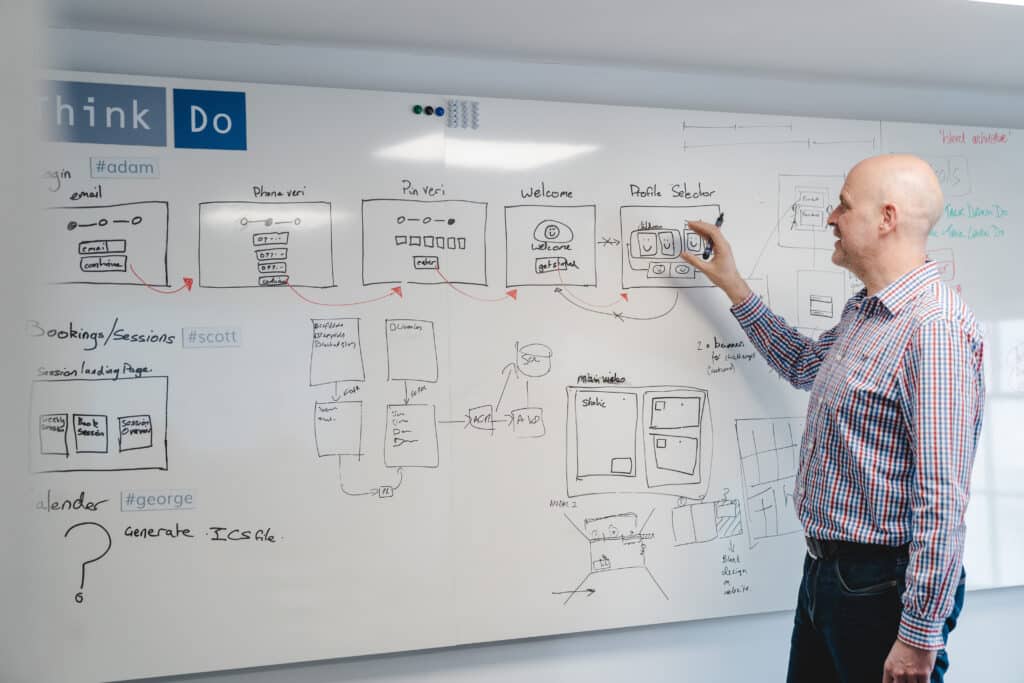The Importance of Risk Appetite for Business IT in the Current Climate

The world is adapting to meet the demands of the COVID-19 crisis. We have altered how we live and how we work. And organisations must act fast to stay on top of a quickly developing situation. This involves taking risks on projects that might otherwise have been considered more long-term in terms of business goals. When the survival instinct kicks in, many businesses naturally adopt an increased risk appetite for business IT. Often there is no other choice.
In this blog, we discuss how organisations are quickly deploying cloud solutions to enable remote working risks and how this might affect the way that businesses approach IT projects in future. The pandemic has only acted to highlight issues that would have presented themselves further down the line, so the fact that Covid-19 is speeding these up is a positive outcome.
It will be interesting to see in the future if:
- An increased risk appetite continues post pandemic
- Businesses will be more aware of their IT needs
- Decision makers will be more proactive
Risk appetite: a definition
Risk appetite is the amount of risk that a business is willing to take to achieve and complete its goals. Often measured in a number of levels, ranging from ‘averse’ to ‘hungry’, risk appetite is a useful means of gauging why certain projects are given the green light and others are left on the shelf.
An increased risk appetite for business IT
Everything a business does involves risk, from hiring a new employee, developing a new sales strategy, or planning the Christmas party. Risk appetite is a useful tool to measure the risks involved in any business decision. IT projects are a particular focus for this, as the success of IT systems affects everyone in the organisation and because they can be time and cost intensive.
Businesses must judge what the risks are for migrating to the cloud, for adopting a particular security strategy or for complying to internal governance or external regulations around data. How organisations approach these tasks will vary in risk, and whether a project goes ahead will depend on the organisation’s level of risk appetite.
But the pandemic has shown that in emergency scenarios, not only does risk appetite for business IT increase but in many cases there isn’t much time to give the whole process extensive thought.
Cloud now, worry later
The most common IT transformation businesses are making is the move to, or scaling up of their, cloud technology. This has been important to facilitate remote working. Some businesses are already well-placed for remote working, but others have been forced to play catch up at the worst possible time – rapidly deploying VPNs and migrated systems to the cloud to support their employees working from home.
Time is of the essence
Before the pandemic, lots of businesses may have placed moving to the cloud on their long-term roadmap. Perhaps this was for financial reasons or to do with the culture of the organisation. For many it was down to reservations about the cloud, or to do with regulations within the industry. Since recent events, priorities have changed.
Previously, many of these projects would have been long, drawn-out affairs. Building a cloud-based app – from design to build and to deployment – would often take up to 18 months. Today, these projects are being rushed through due to the necessity.
Lessons from a crisis
So as businesses move to the cloud and drop their barriers, there are several lessons we can learn.
IT projects don’t have to go on forever
The fast deployment of IT projects has not resulted in the disaster scenario many might have predicted. The increased risk appetite many businesses adopted has demonstrated the benefits of speedy deployments and proven many of the perceived risks unwarranted.
Post-pandemic, businesses are less likely to accept similar IT projects taking months and years to complete. It is likely IT providers will be expected to work faster, in a more agile way, and realise return on investment sooner.
Public cloud is the big winner
Many are predicting that COVID-19 may force businesses to completely shift away from on-premises IT and even away from hybrid IT.
Microsoft’s public cloud, Microsoft Azure, is a more resilient offering than hybrid or on-premises IT and businesses are learning this first-hand now.
- Azure allows for quick and speedy resolutions to problems. This has always been important. But it becomes even more vital when businesses are having to react quickly to a fast-evolving landscape. The resilience and flexibility of the public cloud is a huge competitive advantage.
- Business continuity can be negatively affected by hybrid IT. Many organisations have faced challenges in terms of simply not being able to access IT on-site. In lockdown, offices are closed, and there is limited access to datacentres. Microsoft promises its customers uptime guarantee, so even when an unprecedented event happens, you can still access your business’s vital data.
- Azure enables businesses to move from capital to operational expenses, freeing up budget to allow your business to focus on growing instead of being laden down with large IT investments.
- Microsoft’s cloud offering also gives your IT team more room to work on your business. Private and hybrid clouds still require a lot of maintenance taking away precious IT resources that could otherwise be focused on day to day work of higher business value.
- When it comes to security, Microsoft Azure is one of the safest bets for your business. Top class security is a requirement for any business and with Azure you won’t have to worry about the critical data you store.
The future of risk appetite for your business
As lockdown restrictions begin to ease, business of all sizes must consider what work will look like post pandemic. It seems unlikely, in the near future at least, that we will return to working life exactly as it was before. This calls into question the relevancy of on-premises IT or the cost-benefit analysis of long, drawn-out IT projects.
At Talk Think Do, we understand the risk your business takes when embarking on a significant IT project. For years, we’ve staked our name on understanding your needs with precision, planning meticulously and deploying your solution efficiently. So, no matter your needs in this unpredictable time, we are one team you can depend on.
To learn more about how Talk Think Do can help your organisation scale up your cloud technology or rapidly deploy secure IT environments, get in touch with the team today.
Get access to our monthly
roundup of news and insights
You can unsubscribe from these communications at any time. For more information on how to unsubscribe, our privacy practices, and how we are committed to protecting and respecting your privacy, please review our Privacy Policy.
See our Latest Insights
Shipping AI in the Real World: Lessons From Our Latest Cycle
AI moves pretty fast. If you don't stop and look around once in a while, you could miss it. Recognising this, we have been running a structured approach to AI adoption for production systems. A critical element is ensuring we keep up with the latest approaches while retaining safety, responsibility and avoiding inefficiencies cause by...
Working as One Team: How Our Business Analysts Bridge Vision and Delivery
When clients partner with us, they often expect engineers and designers. But one of the most powerful roles behind a successful digital product is often less visible: the Business Analyst (BA). At Talk Think Do, BAs aren’t just requirement-gatherers. We’re connectors, between vision and execution, users and features, partners and platforms. In the recent delivery…
Implementing RAG AI Search on On-Premise Files with our AI Search Accelerator
As demand for AI‑powered tools like Microsoft Copilot grows, many organisations are asking the same question: “How can we harness the power of generative AI without moving our sensitive data to the cloud?” In this guide, we’ll explain why Retrieval‑Augmented Generation (RAG) is so effective for on‑premise data and walk through a practical approach using…
Legacy systems are costing your business growth.
Get your free guide to adopting cloud software to drive business growth.




